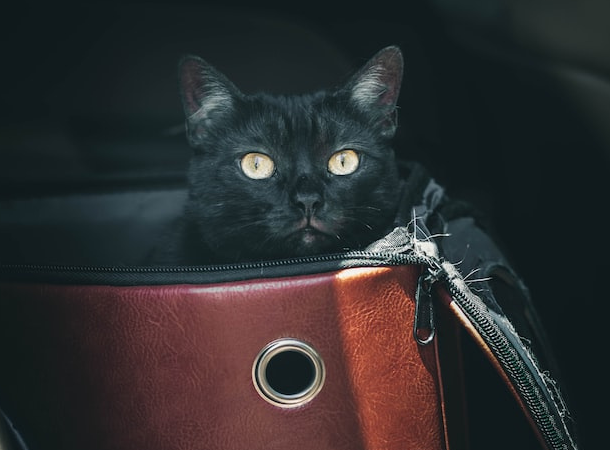Ever hear “I have a bone to pick with you” when someone is mad at you? How about “Can I pick your brain?” when someone needs information only you can provide?
Dive deep into the origins of sayings!
There are so many things that people say on a daily basis that make no sense even though we understand them completely. From a cliché such as “red as a rose,” to “a turn of phrase” to “idioms” to “expressions,” whatever they are called, they are used every day, and we have no idea where they actually came from. Today, that all changes as we dive deep into the eclectic, confusing, intriguing origins of sayings in everyday life! You may be surprised when you hear some of their stories. This person wants you to be cautious and careful. They want you to slow down and really consider what you are about to do. But what are they actually talking about? You don’t need to be careful. Caution be damned, and you have no horses! This is nonsense! The phrase likely started around 1825 with the building of the Erie Canal near Buffalo, New York. The canal was built to transport goods between Albany and Buffalo. The merchandise was loaded onto barges. Teams of horses walking along a tow path would be used to pull the goods from one side of the canal to the other. Because there were several teams of horses walking along the path at once, it would be easy for chaos to occur if the teams got too lost together. So, what literally started as a term meaning “Hold on, wait, be cautious with your horses” has now become synonymous with waiting while being patient and cautious. Brand and Spears appeared in the ad, improving a conversation about the 2008 broadcast while never discussing all of her issues as well as her disastrous 2007 VMA performance. While Brand kept glancing at the elephant, Spears refused to acknowledge it. The “elephant in the room idiom” is used to refer to something that is blatantly obvious and willingly ignored because acknowledging it would be far more awkward and uncomfortable than simply discussing it and getting it out if the way. The first known usage of the phrase is from a fable entitled “The Inquisitive Man,” written by author Ivan Krylov. The story is about a man who, while visiting a museum, becomes so preoccupied by small unimportant details and insignificant items that he never notices there is an aging elephant in the room with him. You have accidentally let the cat out of the bag. Letting the cat out of the bag is associated with giving away information or revealing the truth about some sort of fraud or deception. The term originated in the 1500s in the marketplaces of that time. Sometimes, less than reputable vendors would sell what the buyer believed to be a small pig in a bag, to be taken home and raised for meat. The bag would actually contain a stray cat, which was quite worthless. If the buyer was smart, they would have opened the bag immediately prior to the transaction being completed. If there was fraud involved, they would “let the cat out of the bag”! This phrase is also a throwback to the marketplace, but this time from the 1700s. In China, when bringing cattle into a marketplace, a few of them would get separated from the others and wander into various stores, some of which sold crockery and tableware. These cattle would cause chaos and destruction, which is how these sayings came to be. You may be surprised to learn that this saying comes directly from the Bible. To be exact, in chapter 19, verse 20, from the book of Job. It says, “My bone cleaveth to my skin and to my flesh, and I am escaped with the skin of my teeth.” Again, what non-existent teeth have to do with it is a bit of a mystery, but that is where it comes from. You may know a child is stealing food from the lunchroom at school. But as you also know, the child is from a poor family that doesn’t have enough money to be able to always buy food, so you choose to ignore it. You have turned a blind eye to the situation. The phrase is widely believed to come from the British Naval Admiral Horatio Nelson, who was blind in one eye. During the Battle of Copenhagen, Nelson was ordered by his superior officer to retreat using flags from another ship. Nelson knew that if they just kept pushing forward, the battle would be won. When asked why he chose to ignore direct orders, Nelson stated that he had accidentally put his looking glass on the wrong eye and didn’t see the message. Of course everyone knew this wasn’t the case, but when pushed by one of his officers from his ship, he made a comment about having the right to use his blind eye every once in a while. The phrase “feeling under the weather” comes from the days of the ancient sailors. If a member of the crew was hungover or experiencing seasickness, they would be sent below decks until they felt able to return to work. Going below decks would allow the sailor to get out of the harsh elements associated with ocean travel. The term that was used was “get him out of under the weather”. The phrase itself comes from the world of hunting. While hunting various types of birds, hunters sometimes had to actually beat the bushes in a wooded area to get the birds out of hiding. They had to do this before they could get to the point of the hunt, killing the birds. They had to beat around the bush before getting to the point! This phrase actually comes from the 1714 Riot Act, which was enacted by the British government and King George I. At the time, there was fear that the government would be overthrown by angry supporters of the previous regime. The act was designed to make unruly gatherings illegal. If a group of more than 12 people gathered together, they would be read the riot act and told to either disperse or face imprisonment. I didn’t make the rules, I just followed them. This saying originated in the world of horse racing. Shocker, right? More specifically, it formed around the gambling side of horse racing. When anyone betting on the races wanted some inside information, they would go to the stable boys because they spent the most time around the horses and knew more about them than anyone else. They would (often for a small fee) share whatever information they had. The term “straight from the horse’s mouth” meant they could trust the tip and place their bets. The phrase comes from the days of piracy. If a particular pirate was marked for death, he was sent a card, an ace of spades, with a black spot in the middle. When someone received this card, he was “put on the spot”. This is also the same reason the ace of spades is considered the “death card! Debbie Downer is a wet blanket. ” When someone is called a “wet blanket”, it is because they are probably depressing everyone around them and extinguishing everyone’s joy. As far back as the 1700s, chefs kept a wet blanket in the kitchen near the stoves to be able to quickly put out kitchen fires. Wet blankets were perfect for extinguishing fires because they were warm, heavy, and cool. The fire became a metaphor for joy or happiness, and the person who caused it to go away became known as a wet blanket. Nope ! In France during the 1700s, hat makers used mercury to produce the felt used for their hats. The dangers of mercury exposure were unknown at those times, and the hatters developed symptoms of mercury poisoning. These symptoms include extreme shyness (most likely from anxiety), irritability, and uncontrollable tremors. Those who saw these hatters thought them to be crazy, and the term “Mad as a hatter” was born. Pushing the envelope can be applied to any activity where the participants are pushed to the breaking point. It is also used when someone pushes the boundaries of what is acceptable. Even though it is applied to all sorts of things, it is actually a term used in aeronautics. “The envelope” is actually a set of specs for any type of plane. It uses intricate math equations to determine what an aircraft is capable of. So, when Maverick pushes the plane past its limits at the beginning of the movie, he is literally demonstrating Pushing the Envelope. There are two main trains of thought on this one when it comes to the origin of these sayings. The first comes from ancient Egypt, where cats were worshiped. To keep people in line, anyone who spoke against the government, or the church, lied, or spoke without permission was given the punishment of having their tongues cut out. The tongues would then be given to nearby cats as a special treat. Another theory is that the cat in question is not actually an animal at all, but rather a cat of nine tails. This device was used to whip sailors when they were given a secret by an officer and didn’t keep it. In its history, it has been used to punish many different types of offenders. This whip was called The Cat because of the way it was designed, having knots formed into heavy pieces of rope that would scratch and tear the flesh of the person being punished. The standard was 80 lashes from The Cat. It was so intensely painful that its victim would hardly be able to breathe, much less speak. The person delivering the lashes would then ask, “Cat got your tongue?” as a warning to everyone not to speak out of turn. I like to think the truth is a combination of both. The sailors may have heard the phrase based on the history of the Egyptians and started using it themselves. But you should feel free to choose whichever origin disgusts you the least. Then one of your friends picks up the nearest liquor bottle, offers it to you, and says, “Hair of the dog that bit you?” The idea is that if you drink more of what gave you the hangover, you will somehow feel better. (It doesn’t, trust me.) This phrase is more straightforward than you may expect. There was an ancient belief that if someone was bitten by what they suspected was a rabid dog, they would do one of two things: either give that person an elixir made from various herbs and hair from the dog in question, or 2) take a hair from the “rabid” dog, put it in the wound, and wrap it in bandages to let it heal. Burying the hatchet is credited to the Native Americans who, upon seeing their way of life threatened, would end up battling the Puritans who had settled in the new land. When negotiating, Native Americans were known to bury their weapons during talks to make them inaccessible. It was their way of showing a commitment to peace. Sometimes spoken as “tit up,” the phrase has been traced back to the mid-1800s as a description of dead animals lying on the ground or sometimes floating on their backs in bodies of water. When someone saw one of these creatures, they would say it was belly up. The phrase caught on and eventually became what it is today. A “silver lining” is used to point out the one miniscule positive thing in what seems to be an otherwise bad time. The term was created by the poet Milton, who wrote about seeing the sun break behind a particularly dark cloud, creating a “halo” around it. He described it as a silver lining. The origin of this phrase comes from the days when men wore makeup, dressed in very fancy clothes, and wore wigs. The way to tell how important a man was was by looking at the size of his wig. The bigger the wig, the more important the man wearing it. Songwriters call this a hook. To everyone else, it’s an earworm. Around 1000 years ago, people would find earwigs in the ears of corn. They would infest the corn, leaving it inedible. Because they would get into “ears” of corn, these people figured the earwigs would also get into their ears as well. Because why not, right? The Germans altered the word to “Ohrwurm,” which translates to “ear itch.” And as a particular bit of music could get in your ears and then your head, it became associated with the “hooks” in songs. It evolved back to its original term of an earworm, and it is still used to this day. The origin of Getting Cold Feet comes from the military. Back in the 1600s and 1700s, soldiers and warriors went into battle, often in harsh weather. If their shoes or foot coverings didn’t protect them from the elements, their feet would freeze. This would leave them incapable of going into action. They simply couldn’t move forward because they ‘got cold feet.’ This term is a pretty recent one as it started on college campuses in the mid-1960s. It was an offshoot of the original phrase “Going ape,” which means the exact same thing. If you go a few decades earlier, Going Ape was often used to describe a person who was sexually perverted. This could be the reason college students changed the phrase to “Go bananas” The term started in Port Royale Jamaica, in the 1600s. Pirates would arm themselves with as many weapons as they could. They had to carry multiple guns because guns would only give one shot before a long reloading process needed to be done. A pirate would carry two guns at once, fire them, then grab another set from their bandolier. They would run out of ammo quickly so they would carry a knife… you guessed it… in their teeth. As far back as 1750, the term was used in adventure stories. But a variation of “Bite the Dust” was found in the bible. Psalms 72:9 says, “They that dwell in the wilderness shall bow before him, and his enemies will lick the dust” It is likely that passage inspired the phrase.
























































